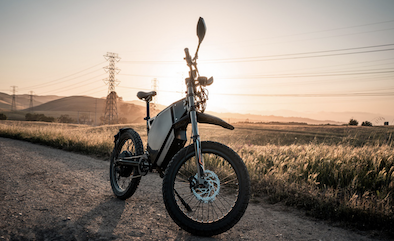Do you need a license plate to ride your eBike?
Feb 02, 2022 13:05
Owning an electric bike comes with better mobility in the city, lower maintenance costs…and weird law regulations that are different from state to state. At least most states agreed on a three-class classification system that allows writing these laws more accurately. The main problem with these laws is licensing ‒ both vehicle operator’s license and registration of the said electric vehicle. Let’s delve deeper into how different states of the USA manage it ‒ we’ll take Delfast TOP 3.0 as an example in this article.

Some states require eBike owners to have a license and a plate, and some are not. If you’re riding in your state and know that by the law you don’t need a license, that’s one thing. But if you’re planning a trip to other states, knowing their regulations is really important.
Every state has its own rules and regulations that govern electric bikes driving. In most states including the five most populated (New York, California, Texas, Pennsylvania, and Florida) you don’t need a license plate and driver’s license. Some states, however, require you to have your eBike registered so you can use it on public roads. Louisiana and North Dakota, however, require every eBike to be registered, as well as some other states. Even if your home state doesn’t need electric bike registration, you have to make sure it’s legal to drive it somewhere where registration is a must. Most states don’t need it, though, so taking a scenic ride in California or Nevada won’t be a problem.
This is relevant mostly for Class 2 eBikes ‒ they don't have registration and a plate in most states.
Speaking of electric vehicle classification, there are three main classes of electric-powered vehicles. This classification is accepted in most states. Class 1 electric bikes can reach the maximum speed of 20 mph. They also can use their motors only to supply pedal-assist system with power. That means, once the driver stops pedaling, the pedal-assist system turns off. Class 2 vehicles additionally have throttle and can use a pedal-assist system to put the bike in motion regardless of pedaling. Class 3 electric bikes have more powerful motors that can give the power to speed up to 28 mph ‒ this is why some states compare them to motorcycles and mopeds.
So, Class 2 means that the vehicle has a motor with a maximum capacity of 750W, throttle, and a maximum speed of 20 mph. These vehicles also have a pedal-assist system that turns off once the rider reaches 20 mph. Delfast’s TOP 3.0, for example, falls into this category, meaning you won’t need a license or a plate in most states to ride it. Some states allow you to ride Class 2 eBikes only if you have your owner's license ‒ this is the case for Missouri. This way, you don’t need a plate or anything else to register your bike ‒ just make sure you have your license with you. For Alaska, Alabama, and North Dakota, you have to have both your operator’s license and registration for your electric bike.
South Carolina and New Jersey consider some electric bikes to be motor vehicles equal to mopeds or motorcycles, meaning they have to be registered. This, however, is the case only for Class 3 electric bikes, while most of the eBikes easily fall into the Class 2 category, including TOP 3.0
Delfast TOP 3.0, for example, falls into Class 2 criteria. This electric bike has a 750W motor that can speed the vehicle up to 20 mph. This eBike also has a three-mode pedal-assist system and a throttle for riding off-road trails. No licensing is required for this electric bike in most states, but it won’t hurt to double-check this information with respective local authorities.
Be aware that even though a certain state might not require a license or a plate from you, you might still need these things in order to drive on national park territory. Make sure you’ve read local laws including those governing riding in national parks.
The best option due to varying laws is to check in with local authorities before taking a ride. There’s also another thing that every state controls ‒ wearing safety gear. Helmets are also required in most states for riding electric bikes, but this should be a no-brainer regardless of the state. A helmet is a must even if you’re taking a slow ride in the city ‒ it’s a matter of personal safety that shouldn’t be ignored.







































































